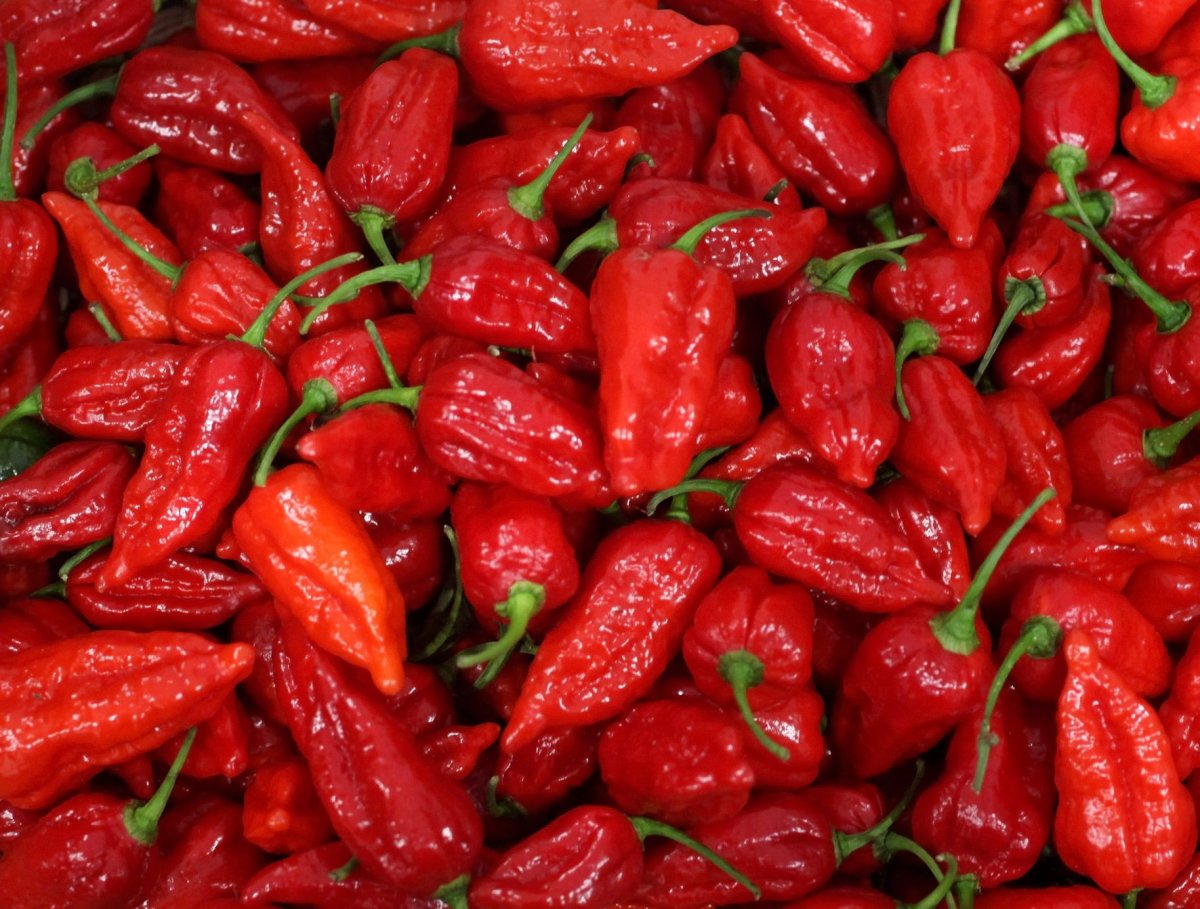After a man who ate the world's hottest chili pepper was tested for brain damage, you might be forgiven for thinking it's best to avoid consuming the Carolina Reaper. But chili growers have defended the fruit, and stressed it is safe to eat—although probably not whole.
Last week, an article published in the journal BMJ documented the case of a 34-year-old man who visited the emergency room as he was repeatedly struck with severe headaches days after eating a Carolina Reaper.
Brain scans revealed that the arteries in his brain were constricted and he was diagnosed with thunderclap headaches. After five weeks, the arteries returned to normal. Scientists believe it to be the first documented case of a chili pepper causing thunderclap headaches.
In the past, cayenne peppers have been linked to heart attacks and the coronary artery suddenly constricting. "It is plausible that our patient had reversible cerebral vasoconstriction syndrome (RCVS) secondary to the Carolina Reaper," the authors of the report noted.

Capsaicin is the molecule in chili peppers that creates the hot flavor but also activates receptors responsible for the perception of pain, which fire off warning messages to the heart and brain.
But Steve Waters, the co-director of the South Devon Chilli Farm in the U.K., told Newsweek that Carolina Reapers have a "tropical fruit" flavor and are perfectly safe consume in small amounts.
"Many spices can cause unpleasant effects if the consumer over indulges. Used as an ingredient in the right amount then it is fine," he said, comparing it to gradually adding salt to a meal.
For the best, and safest, results, the pepper should be prepared in food.
"In a sauce is best as it avoids 'hot spots' in the food," he explained. "The advantage of the Carolina Reaper chili to our customers is that it goes a long way in cooking. As it is a very hot chili, we recommend using a pre-made sauce to avoid contact with the skin while chopping fresh or using powders."
Chili grower Salvatore Genovese, meanwhile, told Sky News that none of his customers have been hospitalized after eating a Carolina Reaper.
"It's not really designed to just plonk it in your mouth and eat it. I would never do that and I wouldn't recommend it," the grower, who runs Love My Chillies in the U.K., told the broadcaster.
In 2013, the Guinness World Records named the Carolina Reaper as the world's hottest chili, beating previous winner the Trinidad Scorpion "Butch T". While the Scorpion measured in at 1,463,700 Scoville Heat Units, the reaper came in at 1,569,300. Earlier this month, the Guinness World Records updated the reaper's Scoville score to over 2,189,000.
Ed Currie of the PuckerButt Pepper Company grew the vegetables as a hobby for over 20 years, but devoted his time to breeding "weapon quality peppers" in 2012, he told the Guinness World Records. He spent ten years developing the pepper, which is a cross between Sweet Habanero and Naga Viper chillies.
Uncommon Knowledge
Newsweek is committed to challenging conventional wisdom and finding connections in the search for common ground.
Newsweek is committed to challenging conventional wisdom and finding connections in the search for common ground.
About the writer
Kashmira Gander is Deputy Science Editor at Newsweek. Her interests include health, gender, LGBTQIA+ issues, human rights, subcultures, music, and lifestyle. Her ... Read more
To read how Newsweek uses AI as a newsroom tool, Click here.








